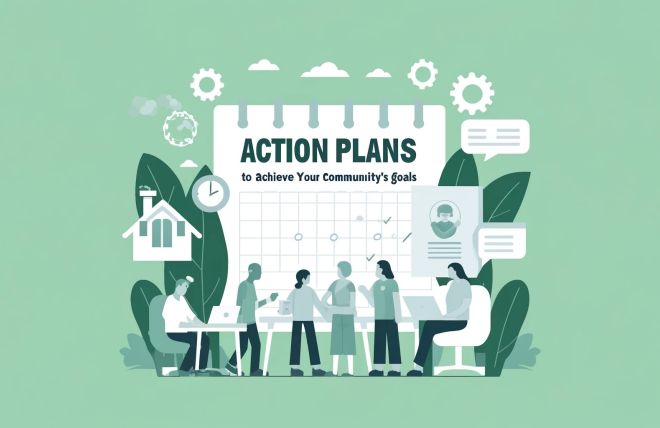Strategic planning is a critical component for the success of any homeowners association (HOA). While it may seem efficient for HOA boards to handle this process independently, involving homeowners can lead to more effective and sustainable outcomes. This blog post explores the significant benefits of including homeowners in the strategic planning process, demonstrating how their participation can enhance the planning's effectiveness and the community's overall satisfaction.
Increased Buy-In and Support
- Engagement Leads to Commitment: When homeowners are part of the planning process, they are more likely to feel a sense of ownership over the final decisions. This sense of ownership often translates into greater support for implementing the strategies and policies that come out of the strategic planning process.
- Understanding and Transparency: Involving homeowners helps demystify the decision-making process. This transparency can reduce misunderstandings and skepticism regarding the board’s intentions, fostering a more trusting community environment.
Enhanced Decision-Making
- Diverse Perspectives: Homeowners bring diverse perspectives that can contribute to more holistic and well-rounded decision-making. Their varied backgrounds and experiences can lead to creative solutions that a smaller, more homogeneous group might overlook.
- Real-Time Feedback: During the strategic planning process, immediate feedback from homeowners can help the board identify and resolve potential issues early, avoiding costly or divisive mistakes.
Improved Community Satisfaction
- Tailored Solutions: Homeowners have first-hand knowledge of the community's strengths and challenges. Their input can ensure that the strategic plans address real issues and fit the community’s specific needs, leading to higher satisfaction.
- Reduced Conflict: Open lines of communication and the opportunity for input can decrease the likelihood of conflicts and increase the speed of resolution when disagreements arise, fostering a more harmonious community.
Resource Optimization
- Pooling Resources and Talents: Involving homeowners can tap into a wide array of skills and resources that might otherwise be costly or unavailable. Homeowners may offer professional expertise or personal experiences that enrich the planning process and reduce the need for external consultants.
- Cost Efficiency: Engaged communities are often more willing to volunteer, reducing the need for paid services and thus lowering the costs associated with implementing new initiatives.
Strengthened Community Relationships
- Building Social Capital: Involving homeowners in strategic planning can strengthen ties between neighbors and between residents and the board. These relationships are crucial for building social capital within the community, which can be invaluable in times of need.
- Fostering a Sense of Community: When homeowners contribute to the development of their community, it can enhance their commitment to the community’s well-being and increase participation in other community activities.
How to Effectively Involve Homeowners
- Communicate Clearly and Often: Use multiple channels to ensure all homeowners are aware of the opportunities to participate and understand the importance of their involvement.
- Facilitate Accessible Meetings: Schedule meetings at convenient times and provide remote access options to encourage participation from a broader segment of the community.
- Offer Various Involvement Levels: Some homeowners may want to be deeply involved, while others might prefer to give feedback on specific issues only. Offering varied levels of involvement can cater to different preferences and availabilities.
- Provide Educational Resources: Educate homeowners about the strategic planning process, the current state of the community, and key issues being addressed. Knowledgeable participants can contribute more effectively.
Conclusion
Including homeowners in the strategic planning process is not just about gathering input—it's about building a vibrant, engaged, and cohesive community. The benefits of their inclusion extend beyond the immediate outcomes of the planning process, fostering a proactive, informed, and united community ready to face future challenges together.
By actively involving homeowners, HOA boards can enhance the effectiveness of their strategic planning efforts, resulting in a stronger, more connected community.







